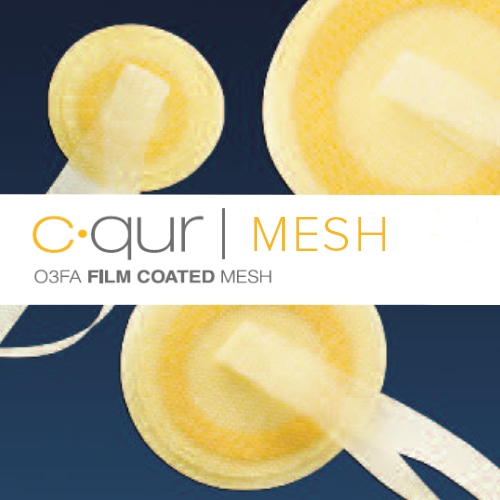The Case
Hernia Mesh Lawsuit
Our investigation into hernia mesh originally started with Atrium’s C-Qur hernia mesh several years ago. During our investigation into the C-Qur hernia mesh, we continued to receive calls from those injured by other hernia meshes. Many of the calls we were receiving were regarding polypropylene hernia meshes that had a coating applied to them. The coating is applied to the hernia mesh to keep the polypropylene off of the patients bowels. This design works to some extent on a short term basis, but the coating is designed to disappear and absorb into the patient’s body after several months. On the coating is gone, bare polypropylene can attach and erode through a patient’s organs. The large and small intestines are the most commonly injured organs.
Our hernia mesh attorneys have also discovered that the coatings on hernia meshes are extremely difficult to sterilize, resulting in severe infections. The infection problem is compounded with the extreme difficultly in removing the hernia mesh once it is attached to the patients bowels. It is common the need to remove part of the patient’s bowel when removing the hernia mesh, due to had adhered the mesh is to the bowel. The companies that manufacturer these hernia meshes have been aware of the life-threatening complications for years. As a result of the medical device manufacturers reckless disregard for human life, our attorneys have started to file hernia mesh lawsuits.
ABOUT ATRIUM C-QUR MESH
The Atrium C-Qur mesh (pronounced Atrium “Secure”) was approved by the FDA in March of 2006, through the 510K approval program, which allowed the medical device to be introduced without rigorous pre-market research and studies. Atrium C-Qur mesh has been used for hernia repair, chest wall reconstruction, as well as traumatic or surgical wounds. Production of the Atrium C-Qur mesh was halted on February 4, 2015. The Atrium C-Qur mesh was advertised as having an all-natural Omega 3 gel coating. The actual coating is derived from a highly purified pharmaceutical grade fish oil consisting of a unique blend of triglycerides and Omega 3 fatty acids.
FDA ACTION
On October 11, 2012 the FDA issued a warning letter to Atrium Medical Corporation, noting that the company was failing to adequately address multiple complaints in 2012 related to infections associated with the C-Qur mesh. The letter further noted that the company appeared to be ignoring numerous sterility complaints, including at least 35 separate complaints of human hair found in medical devices that were supposed to be sterile. On August 9, 2013 the FDA announced a class 2 recall of the C-Qur Edge mesh because the coating on the mesh could adhere to the inner packaging liner due to exposure to high humidity. The recall affected 1,501 units. On February 4, 2015 the FDA issued a permanent injunction, stopping the manufacture and distribution of the C-Qur mesh at Atrium’s Hudson facility. The FDA Office of Compliance stated that “Patients must be assured that medical devices are safe, effective, and high quality.” Production of the atrium C-Qur mesh will not be allowed to resume until the FDA finds that the manufacturing, processing, packing, holding, and distribution of devices are in compliance. The FDA noted that it will “remain vigilant in bringing companies that do not meet our regulatory requirements back to a sustainable state of compliance.” The FDA needs to initiate a hernia mesh recall.
How Do I Know if I Have a Claim?
We cannot answer that question without speaking to you personally as no two people are the same. Please call us to speak to one of our trained team members. An attorney will look over your case and let you know what they believe the best course of action is for you. All case evaluations are FREE, CONFIDENTIAL, and carry NO RISK or OBLIGATION.
Stay up to date with our latest hernia mesh news by follow our Facebook page Hernia Mesh Lawyer.
